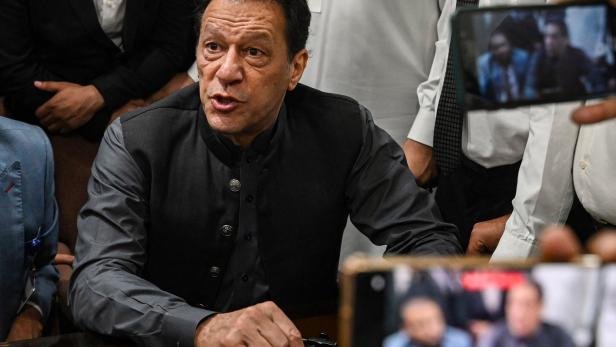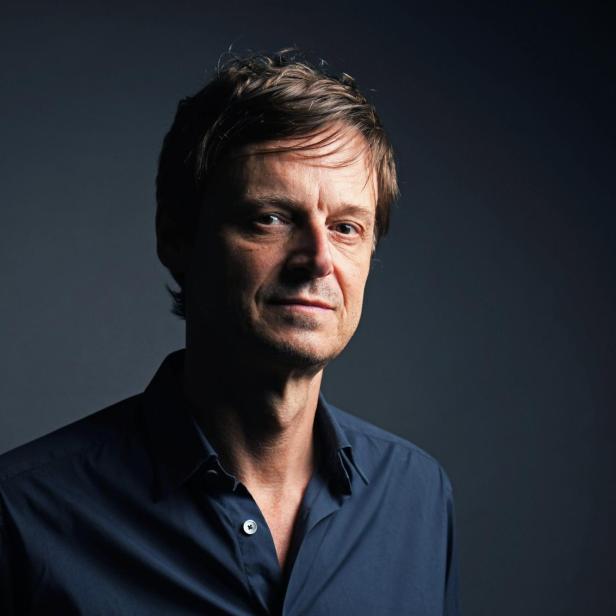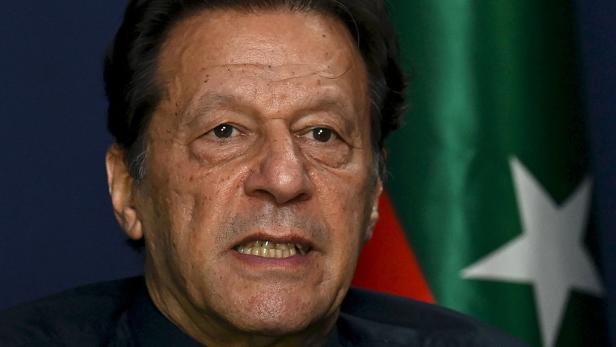Imran Khan, 70, was prime minister of Pakistan until he was ousted by a no-confidence motion in Parliament in April 2022. A former international Cricket star, Khan went into politics in 1996, founding the Party Pakistan Tehreek-e-Insaf (Pakistan Movement for Justice). In 2018 the PTI won the general election and Khan formed a coalition goverment. He is currently under investigation for numerous charges which he claims are poilitically motivated. Most observers think that he lost power because of a rift with the army which has always been Pakistan‘s power center.
What is the legal situation at the moment - are you under house arrest?
Imran Khan
I’m in my house in Lahore. I am not really under house arrest but there is police outside the door and they check who is coming in and going out. Apart from some lawyers and people who are close to me nobody is coming to see me. Workers of my party, supporters or members of parliament would get arrested immediately. So I am rather isolated.
Do you expect to get arrested in the near future?
Yes, I think so. There are over 170 cases against me and there are new ones every day. Bear in mind that until the age of 70 I didn’t have a single criminal case. So I expect that they will arrest me because they are determined to put me in jail before the elections in october. They all know from all the opinion polls that my party will in a landslide so they want to stop me from campaigning.
Who are „they“?
Khan
The people in power, the coalition government backed by the military establishment.
The last time you were arrested, there was civil unrest. Your supporters were attacking the General Headquarter of the army. Do you think this will happen again?
Khan
The last time they illegally abducted me. The Supreme Court ruled that it was unlawful that’s why I was released. It was a commando action. They beat up the lawyers and the staff of the High Court. That was what caused the unrest. But the arson, the burning of buildings, had nothing to do with us. For 27 years my party was never involved in arson or violence. In fact even when I was shot there was no violence. So we believe that this was preplanned in order to dismantle my party. 10.000 of our workers were put into jail within 48 hours.
Will the elections be held in October?
Khan
They will only be held in October if they think that my party is weakened enough so that it cannot compete. That is the only way there will be elections. The people who removed me do not want to see me back in power.
In case you and your party cannot participate in the elections – what will you call for?
Khan
It is not possible to ban the party. They definitely will put me in jail. Unless they make a farce of the election they will not be able to stop my party from winning, even if I am in jail.
You recently said that while you were in power you could not bring the powerful under the law. I suppose you meant the military establishment. But in the beginning you yourself relied on the military. Was that inevitable or was it a mistake?
Khan
Let me explain: The military was in power in Pakistan directly or indirectly for 75 years. The reliance on the military was engrained in our society. When I came to power in 2018 I didn‘t get help from the military but they didn’t oppose me either. Right now the mililtary establishment is working to undermine me. Since we are out of power – and even though the military is working against us – we still won 30 out of 37 by-elections. The next questions is: What is the role of the military? As time is passing the country must evolve to a point where you cannot have a situation where an elected prime minister has the responsability to run the country and yet he doesn’t have the authority. What happens to countries who haven‘t got the rule of law? They become banana republics and there is no prosperity. These countries get poorer. The consequence is the problem of migration to your countries. In Pakistan the army chief takes the decisions. He did not want me to bring the powerful under the law. And so I failed.
What makes you think that you will succeed if you get elected again?
Khan
Well, my goverment was a weak government, a coalition government with a very small majority. It is impossible to take tough decisions, to make reforms and especially: to bring the powerful mafias under the law. It is very easy for them to destabilize the goverment. Despite of one of the best performances, our government was pulled down.
Let’s look at the record of your government: There was a lot of criticism coming from independant media abroad and from NGOs like Human Rights Watch. Media were shut down, journalists charged because of statements they made on social media… Can you defend your own record?
Khan
All you have to do is compare the treatment of the media during the three and a half years of my goverment to the 14 months since: Today the media is completely under control. There is total censorship. I myself am under a total ban. One of our best investigate journalist who was a critic of our government had to flee the country and was assassinated in Kenya. His name was Arshad Sharif. There are other examples. There is one journalist missing since 40 days. This never happened when I was running the government. There were a few instances of fake news on social media, of vulgarity, and there was some action. But the media were free, and there was no interference in the judiciary. You cannot compare this to what is happening now.
You claimed that the US played a role in your ousting. Do you uphold this?
Khan
In a modified version. On the 6th of March 2022 I received a crypted message from the Pakistan ambassador in Washington saying that he had had a meeting with the Undersecretary of State. Unless I were removed through a vote of no-confidence there would be consequences for Pakistan. And the next day a no-confidence vote was tabled in parliament. So we protested. But later on we discovered that there had been a lobbyist telling the US that I was anti-american whereas the army chief was pro-american.
Is there still a major discrepancy between your political view and the one of the US administration?
Khan
The problem is that if you are critical of the US foreign policy they believe that you are anti-american. What happened? The „War on Terror“ cost the lives of 80.000 people in Pakistan. And I opposed it throughout. But obviously that‘s over now. There was also the US adventure in Afghanistan which of course it was doomed to fail. The fact that I was critical about that made them think I was anti-american.
Do you consider youself a pro-western politician?
Khan
I am basically a nationalist. My main responsibility were 100 million Pakistanis who are living either below the poverty line or just above it. And to fight poverty you have to have peace. So this Jihad and the War on Terror set us back. We suffered because of that. During this time India went ahead of us, even Bangladesh overtook us economically. Right now Pakistan is suffering the worst economic situation in history.
Every government in the world is being asked whether it will join the pro-western alliance against Russia. Where do you stand?
Khan
I would stand exactly where India stands. It is a part of the US coalition. The Indian prime minister has just gone to the US and signed a huge number of contracts. And yet he bought the biggest amount of oil from Russia at a very cheap rate and he is also trading with China. That’s how it should be. I don’t think countries like us have the luxury of joining blocks. We have a fast-growing population, 250 million people, our country is on the verge of economic collapse. Should our priority be to save this country or should it be to be part of other people‘s conflicts when we cannot afford them?
It is also a politically difficult moment. Where does Pakistan move now? It is still a hybrid regime somewhere between a democracy and authoritarianism.
Khan
We‘ve had three military dictatorships, we experimented with democracy, and sadly, in the past when the gunmen came back they were welcomed by the people with sweets. This is the first time when they removed my government last year in April people came out into the streets to protest about it. This was unique and it shows the evolution of democray too. There is undeclared martial law in Pakistan right now. At the moment whatever the military decides happens in Pakistan. The crackdown on my party was decided by the military establishment.
You’ve been put into prison many times, you have survived an assassination attempt. You were one of the most prominent cricket-players in the world – do you ever regret having gone into politics?
Khan
No, never. 27 years ago, when I started politics, I was the biggest name in this country, I had everything. I didn’t neeed politics for anything. When I was a teenager in England, first studying and then playing professional cricket, I realized that unless we have rule of law in Pakistan we have no future. In Pakistan the ressources have been captured by the powerful and they are above the law. They take the money out of the country. So when I started I knew I would be up against these mafias and I knew I would be risking my life. There were assassination attempts and I was put into jail, but I also feel that never before the people in this country have all stood on one side and the establishment on the other side. Normally the public was divided and this is why the powerful are so scared now. This is why they are desperate to kill me. So this is the answer to your question: Jail? Yes. Possible assassination attempt? Yes. But if we win, we will win general democracy in Pakistan for the first time.
This interview is also available in German:



